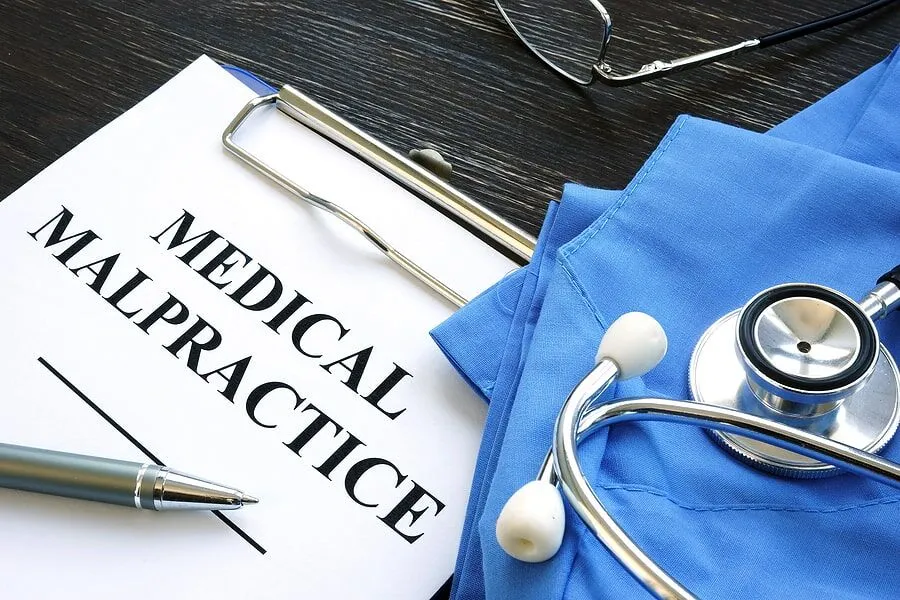Medical malpractice cases rank among the most complex and challenging legal matters to pursue. These cases require a deep understanding of medical procedures, diagnoses, treatments, and the professional standards of care expected from healthcare providers. The success of a medical malpractice claim often hinges on the strength of the supporting evidence. However, even with limited evidence, a medical malpractice lawyer can provide crucial assistance in navigating this difficult legal terrain.
Understanding Medical Malpractice Claims
To understand how a medical malpractice lawyer can help, it’s crucial to understand what constitutes medical malpractice. Medical malpractice occurs when a healthcare provider deviates from the accepted standard of care, leading to harm or injury to the patient. The standard of care is defined as the level and type of care that a reasonably competent and skilled healthcare professional, with a similar background and in the same medical community, would have provided under the same or similar circumstances.

Medical malpractice claims typically involve four essential elements:
Duty of Care: The healthcare provider had a legal duty to provide care to the patient.
Breach of Duty: The healthcare provider failed to meet the standard of care.
Causation: The breach of duty directly caused the patient’s injury or harm.
Damages: The patient suffered harm or injury as a result.
To prove a medical malpractice claim, the plaintiff (the patient) must present evidence that demonstrates all four elements. However, in some cases, gathering substantial evidence can be challenging, especially when medical records are incomplete, witnesses are unavailable, or the harm caused is subtle and not immediately apparent.
The Importance of Evidence in Medical Malpractice Cases
Evidence is the foundation of any successful medical malpractice claim. It provides the basis for proving that the healthcare provider’s actions fell below the standard of care and that these actions directly caused harm. Common types of evidence in medical malpractice cases include:
Medical Records:
These are the primary source of information about the patient’s treatment, diagnoses, and the actions taken by healthcare providers.
Expert Testimony:
Medical experts can provide opinions on whether the standard of care was met and how the provider’s actions may have caused harm.
Witness Testimony:
Witnesses, such as nurses or other medical staff, may provide firsthand accounts of the care provided.
Diagnostic Tests and Imaging:
These can show the progression of the patient’s condition and how the provider’s actions may have impacted the outcome.
Photographs and Videos:
Visual evidence can be compelling in showing the extent of injuries or the conditions of the medical facility.
When evidence is limited, proving medical malpractice can become significantly more challenging. However, this does not mean that the case is unwinnable. A skilled medical malpractice lawyer can help you build a strong case even with limited evidence.
How a Medical Malpractice Lawyer Can Help with Limited Evidence
Conducting a Thorough Investigation
One of the first steps a medical malpractice lawyer will take when you have limited evidence is to conduct a thorough investigation. This involves reviewing all available medical records, interviewing witnesses, and consulting with medical experts. The lawyer will leave no stone unturned in their efforts to uncover additional evidence that may support your claim.
Medical malpractice lawyers often work with professional investigators who can help gather crucial information. These investigators may locate witnesses who can provide testimony or uncover discrepancies in the medical records that point to negligence.
Working with Medical Experts
In medical malpractice cases, expert testimony is often essential to proving that the healthcare provider’s actions fell below the standard of care. When you have limited evidence, the testimony of a medical expert becomes even more critical. A medical malpractice lawyer will have access to a network of qualified medical experts who can review your case and provide their professional opinion.
These experts can help bridge the gap when physical evidence is lacking by explaining how the provider’s actions or inactions likely caused the harm you suffered. Their testimony can carry significant weight in court, especially when the other side is disputing your claims.
Utilizing Legal Strategies to Compensate for Limited Evidence
Experienced medical malpractice lawyers understand the challenges of limited evidence and can employ various legal strategies to strengthen your case. For example, they may use the doctrine of “res ipsa loquitur,” which translates to “the thing speaks for itself.” This legal doctrine allows a plaintiff to prove negligence based on the mere fact that an injury occurred, even if the exact cause of the injury is not clear.
Another strategy that a medical malpractice lawyer might use is to shift the burden of proof to the defendant. This means that once the plaintiff presents a reasonable case, the burden shifts to the healthcare provider to prove that their actions were not negligent.
Negotiating with Insurance Companies
In many medical malpractice cases, the healthcare provider’s insurance company will be responsible for paying any settlement or judgment. When you have limited evidence, negotiating with the insurance company can be challenging, as they may argue that your claim is weak.
A skilled medical malpractice lawyer can advocate on your behalf during negotiations, using their legal knowledge and experience to push for a fair settlement. They can also present your case in a way that highlights the strength of your claim, even if the evidence is limited.
Insurance companies are often more willing to settle when they know that the plaintiff is represented by a competent lawyer who is prepared to take the case to court if necessary. By leveraging their negotiation skills, a medical malpractice lawyer can help you obtain the compensation you deserve, even with limited evidence.
Taking the Case to Court
If negotiations with the insurance company are unsuccessful, your medical malpractice lawyer can take your case to court. In court, the rules of evidence and procedure can be complex, and having a lawyer by your side is crucial.
Even with limited evidence, a well-prepared lawyer can present a compelling case to the judge or jury. They can use persuasive arguments, expert testimony, and legal precedents to demonstrate that the healthcare provider’s actions were negligent and that you deserve compensation for the harm you suffered.
Medical malpractice lawyers are skilled litigators who know how to build a case from the ground up. They understand how to present evidence in the most favorable light and how to challenge the defense’s arguments effectively.





